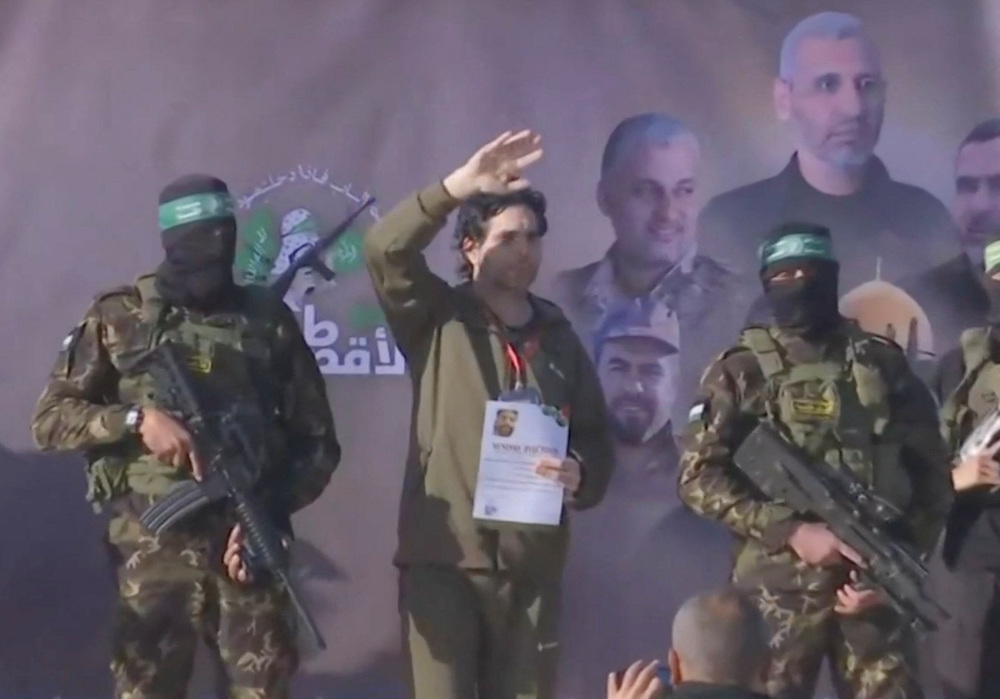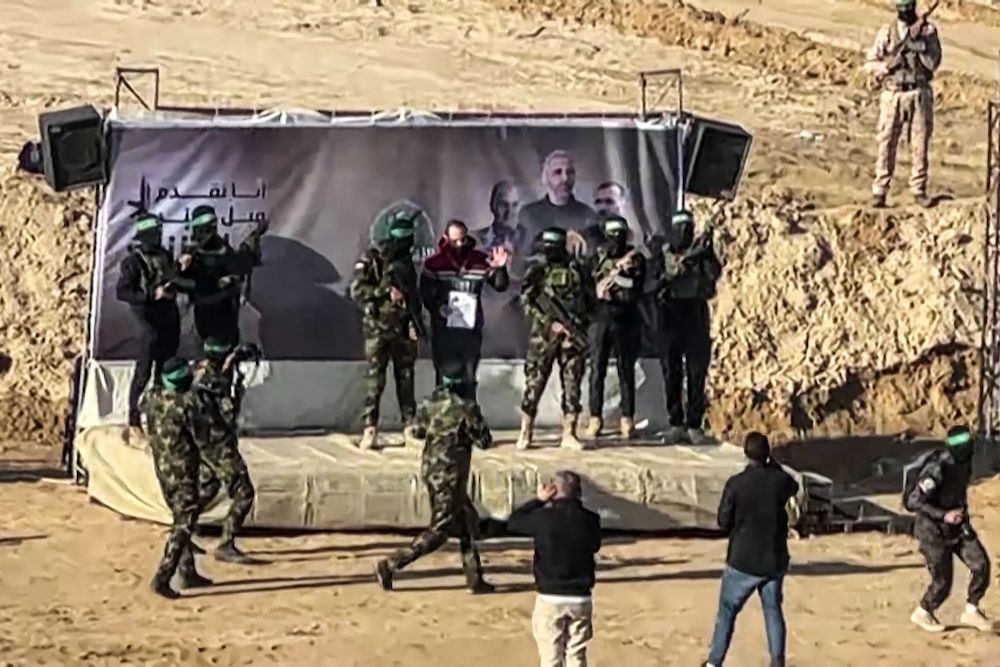HODEIDAH: Firefighting teams on Sunday were still battling a blaze at the Houthi-run port in Yemen’s Hodeidah, hours after an Israeli strike on the harbor triggered a massive fire and killed six people, according to the militia.
Saturday’s strike on the vital port, a key entry point for fuel and humanitarian aid, is the first claimed by Israel in the Arabian peninsula’s poorest country, about 2,000 kilometers (1,300 miles) away.
It killed six people and wounded 80, many of them with severe burns, the rebel-run health ministry said in a statement carried by Houthi media.
On Sunday, Houthi military spokesman Yahya Saree said the militia’s “response to the Israeli aggression against our country is inevitably coming and will be huge.”
Israel said it carried out the strike in response to a drone attack by the Houthis on Tel Aviv which killed one person on Friday.
More operations against the Houthis would follow “if they dare to attack us,” Israeli Defense Minister Yoav Gallant said.
Following the strike, the Israeli military said Sunday it intercepted a missile fired from Yemen toward the Red Sea resort town of Eilat, noting that “the projectile did not cross into Israeli territory.”
Saree, the Houthi spokesman, said the militia had fired ballistic missiles toward Eilat, the latest in a string of Houthi attempts to hit the port city.
The militia announcement came as firefighters struggled to contain the blaze at the Hodeidah port, with thick plumes of black smoke shrouding the sky above the city, said an AFP correspondent in the area.
Fuel storage tanks and a power plant at the port where still ablaze amid “slow” firefighting efforts, said a Hodeidah port employee.
The port employee, who spoke on the condition of anonymity for security concerns, said it could take days to contain the fire, a view echoed by Yemen experts.
“There is concern that the poorly equipped firefighters may not be able to contain the spreading fire, which could continue for days,” said Mohammed Albasha, senior Middle East analyst for the US-based Navanti Group, warning that it could reach food storage facilities at the harbor.
Hodeidah port, a vital entry point for fuel imports and international aid for militia-held areas of Yemen, had remained largely untouched through the decade-long war between the Houthis and the internationally recognized government propped up by neighboring Saudi Arabia.
The Houthis control swathes of Yemen, including much of its Red Sea coast, and the war has left millions of Yemenis dependent on aid supplied through the port.
Despite Houthi assurances of sufficient fuel stocks, Saturday’s strike triggered fears of worsening shortages, which war-weary Yemenis are ill-equiped to handle.
The attack is “going to have dire humanitarian effects on the millions of ordinary Yemenis living in Houthi-held Yemen,” Nicholas Brumfield, a Yemen expert, said on social media platform X.
It will drive up prices of fuel but also any goods carried by truck, the analyst said.
Yemen’s internationally-recognized government, which has been battling the Houthis for nearly a decade, condemned the strike, and held Israel responsible for a worsening humanitarian crisis.
A statement carried by the official Saba news agency said the Yemeni government holds “the Zionist entity fully responsible for any repercussions resulting from its air strikes, including the deepening of a humanitarian crises.”
It also warned the huthi militia against dragging the country into “senseless battles that serve the interests of the Iranian regime and its expansionist project in the region.”

























